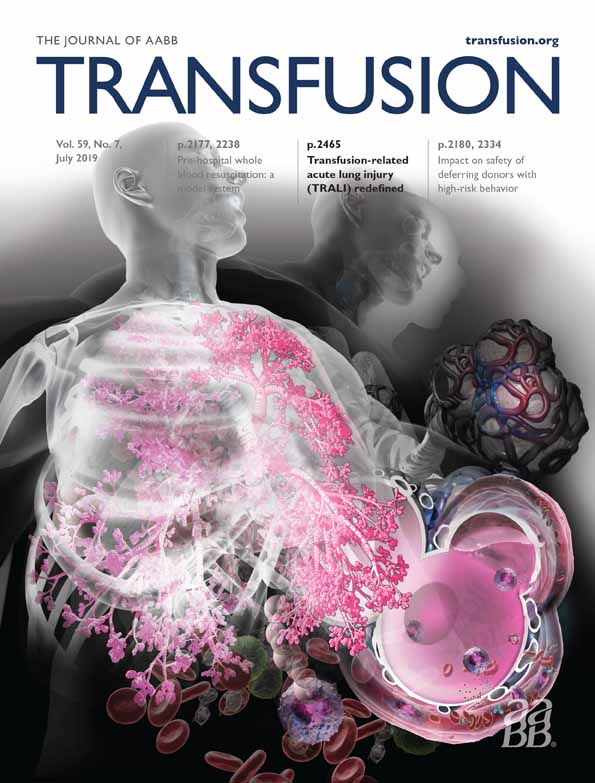RHD genotyping of serologic RhD-negative blood donors in a hospital-based blood donor center
Abstract
BACKGROUND
Serologic RhD-negative blood donors are tested by a method known to detect weak D antigen expression. Serology does not detect all red blood cells with RhD expression and RHD genotyping has been used to identify variant RHD alleles, which may lead to some RhD expression. The aim of this study was to determine the frequency of RHD variant alleles in serologic RhD-negative blood donors at a hospital-based donor center in Los Angeles.
STUDY DESIGN AND METHODS
RHD genotyping of serologic RhD-negative blood donors over a 20-month period was performed using the Immucor RHD BeadChip assay. DNA sequencing was performed when the RHD BeadChip assay failed to assign a genotype. For RHD variants known or suspected to result in RhD expression, recipients of previous blood donations were investigated for alloimmunization.
RESULTS
RHD genotyping was performed in 1174 RhD-negative blood donors, and 1122 were genotyped for RHCE variants. Eleven donors (0.94%) harbored mutations predicted to yield RhD expression. The predicted phenotypes were, in decreasing frequency, DEL, partial, and weak D phenotypes. Anti-D was not detected in 16 patients who had received blood from these donors after an average follow up of 182 days.
CONCLUSION
Genotyping can be used to identify donors with the potential to sensitize RhD-negative recipients. In this limited study, 0.94% of serologic RhD-negative blood donors were found to have variant RHD alleles that might cause alloimmunization in RhD-negative recipients. To our knowledge, a study of this nature has not been reported in the United States.
CONFLICT OF INTEREST
IP-A: No relevant financial relationships to disclose. CH: No relevant financial relationships to disclose. TH: Employed by Immucor. ES: Employed by Immucor. TH: Employed by Immucor. EK: No relevant financial relationships to disclose.




